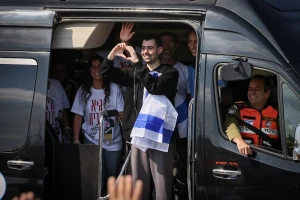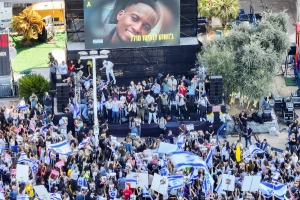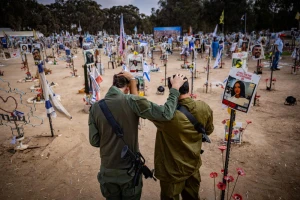In the silence after the storm: Healing hearts in post-war Israel
As the brutal and traumatizing sounds of war fade and hostages return home, Israel faces a new explosion: the psychological and spiritual weight of recovery.
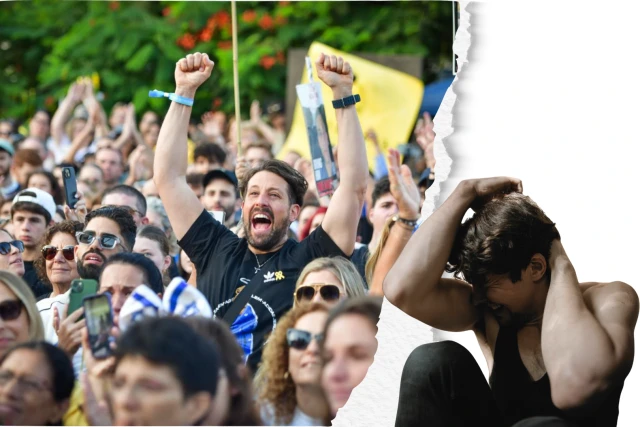
The sounds of missiles and rockets have subsided. The hostages, held for 438 days in Hamas’ tunnels, have finally returned to their families, emerging from two years of fear and uncertainty. A ceasefire, however fragile, blankets the country and its people, still scarred by relentless violence and gruesome terrorism. While the world celebrates what Donald Trump calls “the end of the war,” Israelis live in a quieter, more ambiguous reality: the external battle is suspended, but inner turmoil remains. Many may now be entering a new kind of war, fought not on the ground, but in hearts, minds, and souls.
For those who lived under constant vigilance and fear, the adrenaline that carried them through nights of sirens, loss, and danger has dissipated. Soldiers, medics, volunteers, and civilians, bearing the weight of war, now face an unknown void, which some call “PEACE.” Psychologists speak of a post-crisis void: a period in which the meaning and momentum imposed by a trauma such as war fade, and grief, long suppressed out of necessity, begins to surface. Children, who once instinctively rushed to bomb shelters, now struggle with nightmares, anxiety, and the confusion caused by disrupted routines. While some families rejoice at the return of living hostages, others must still painfully wait for the bodies of the deceased, prolonging sorrow, aware that joy is not for them.
The scale of the war’s impact is staggering. According to the 2025 Israeli National Mental Health Report and WHO data, rates of psychological trauma among Israelis are historically high, and Israeli mental health professionals warn of a “tsunami” of post-traumatic stress and anxiety across all age groups. Dr. Tamar Shapira, a trauma psychologist in Tel Aviv, notes that many frontline responders now face what she calls “post-crisis identity fatigue,” a psychological void after months of heightened alert.
History and Scripture show that such interludes are neither new nor accidental. The Israelites, after crossing the Red Sea, spent decades navigating the uncertainty of the wilderness. Exiles returned to a destroyed Jerusalem, mourning but compelled to rebuild. Even the disciples, after the resurrection, waited in the upper room, uncertain of what would come next. These periods between crisis and fulfillment are sacred spaces where God meets His people, not with fanfare, but with patience. “Be still, and know that I am God” (Psalm 46:10) is not a call to inaction, but a reminder to ground one’s identity in God rather than in circumstances or the roles one occupies.
In this context, the body of believers, both local and international, can play an essential role. Faith communities can provide spaces for collective mourning, safe sharing of stories, and anchoring hope in God’s promises.
Practical action flows naturally from prayer and presence with those who are suffering. Bringing together families, neighbors, and congregations to listen, mourn, and reflect can transform fragmented memories into a shared narrative. Worship, art, and creative expression provide tools for restoration, giving voice to grief while revealing glimpses of hope. Professional counseling services and trauma care programs ensure that care extends beyond the spiritual, addressing body, mind, and soul according to the biblical model.
Post-war Israel faces a paradox: relief and devastation coexist.
As believers, we are called not only to rejoice in the cessation of violence, but to walk alongside those who are still hurting, alongside the grieving, the weary, and the unsettled. God’s work continues even in the silent spaces between catastrophe and reconstruction, between pain and restoration.
Like planting olive trees after a fire, each act of prayer, presence, and compassion becomes a seed of hope, slowly taking root and revealing how God actively heals hearts in the wake of war.
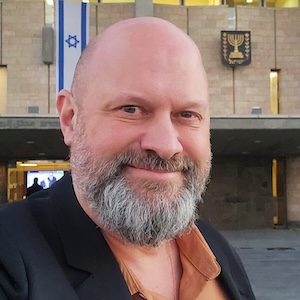
Micaël Carter lives in Israel with his wife and three daughters, having made aliyah from France in 2017. He leads Multiply Equip Impact, serves in ministry and media, and writes on Israel, faith, and the region.
You might also like to read this:


